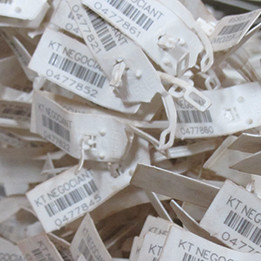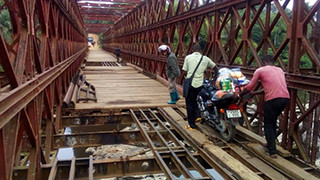Our Purpose – Achieving Together
Creating responsible mineral supply chains that avoid contributing to conflict, human rights abuses, or other risks
What is ITSCI
ITSCI’s purpose is to create responsible mineral supply chains that avoid contributing to conflict, human rights abuses, or other risks such as bribery. Our reference is the OECD Due Diligence Guidance for Responsible Supply Chains of Minerals from Conflict-Affected and High-Risk Areas (2016) and our standards are entirely aligned with the recommendations of that guidance. This alignment is important for compliance with local laws which also reference the OECD Guidance, whether in the DRC, or the US or EU.
ITSCI is a collaborative programme which works both on the ground in high risks areas, and with the international supply chain, to help large and small companies carry out effective due diligence on mineral supplies. We are a multi-lingual team with specialists in trade and commercial needs, human rights and conflict risks, circumstances of artisanal, small scale and large mining, development projects in remote areas as well as evaluation and audit.
We work closely with governments and civil society and facilitate multi-stakeholder meetings in the mining areas to provide the opportunity for local communities to agree approaches to managing risks and bringing about improvements. We believe that addressing challenges as close as possible to source will always be the most effective and successful approach which can be supported by those downstream.
By providing unique and credible information through our on-the-ground field teams on likely and verified risks, as well as monitoring company and authority follow-up to resolve those risks, we provide a mechanism for supply chain information exchange and transparency that encourages continued sourcing by downstream companies, while ensuring that miners can produce responsibly and supporting them with their businesses.
Knowing and connecting all actors in our joint industry programme highlights the consequences of individual actions and successfully encourages progressive change.
Scaling Up
The ITSCI Programme grew from a working group of the International Tin Association established in 2009 and a small pilot in eastern DRC in 2010, to a large scale was formalised structure in April 2011. At that time the Tantalum-Niobium International Study Center (T.I.C.) also joined management of the Programme. ITSCI was established as a voluntary action prior to the US Dodd Frank Act although such legislation has helped to drive our rapid growth.
From piloting traceability of a few tonnes of mineral for a handful of companies in 2010, by the end of 2017 we completed scaling up across mining areas of central Africa to cover an area more than 3 times that of the UK, and enabling the export of more than 21,000 tonnes of mineral concentrate each year; with the vast majority of the value of that mineral remaining in the country of origin. The Programme now helps tens of thousands of miners, at hundreds of mine sites, and monitors hundreds of upstream member companies across the globe.

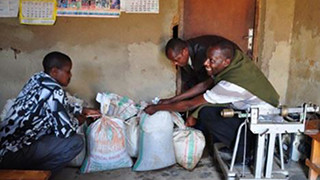
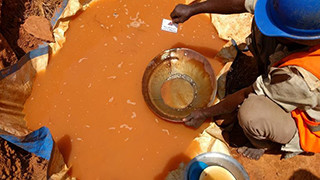
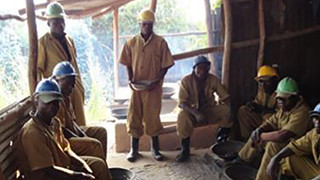
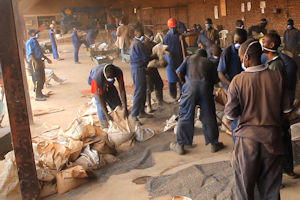
Our Results
ITSCI has demonstrated the power of market incentive to create change in the most challenging areas of the world
mine sites
miners
tonnes mineral
countries
Making risks transparent
Reporting and managing risks is our key priority. In the years between 2011 and 2016 ITSCI recorded and monitored 3,063 individual incidents across four countries which related to risks of support to armed groups, human rights abuses, fraud, corruption, lack of traceability and other issues which relate to the OECD Due Diligence Guidance Annex II.
In those six years we noted the following regarding risks to the 3T mineral supply chain in central Africa;
- Instances of serious human rights abuses were very low, averaging 2 per year;
- Potential risks from non-state armed groups or unidentified bandits totaled 22, or 0.7% of incidents;
- Potential or actual interference, including taxation, by state security services was recorded 62 times, representing 2% of incidents.
Read more about ITSCI PROGRAMME INCIDENTS AND OUTCOMES: November 2021 to October 2022
As ITSCI continues to include and support more mining areas, the number of risks that we identify also increases. This is a positive outcome since transparent reporting brings change and progressive improvement. In 2017 there were 1,243 incidents.
Successful implementation
A detailed assessment by the OECD recently concluded that the standards of the ITSCI Programme are 100% aligned with the 5 Step due diligence recommendations of the OECD’s internationally accepted guidance for good company management, risk assessment and mitigation, auditing and public reporting in responsible minerals supply chains. This is a unique achievement among all initiatives assessed. Our implementation of the due diligence standards was also judged highly by a significant margin, with ITSCI achieving an alignment of 80%
ITSCI has helped to inform more than 380 companies about international expectations regarding the management of conflict minerals, and has helped them to understand and implement due diligence. Not all companies are active at the same time; the trading chain is dynamic, with new companies established all the time, and others failing for economic reasons or failures of due diligence. ITSCI can, and does, expel member companies for lack of commitment to, or progress in due diligence.
ITSCI is currently focused on enabling the supply chain supply and source responsible minerals from 4 countries (Burundi, DRC, Rwanda, Uganda). This covers an area of around 3 times the size of the UK across which field teams provide a continuous presence in challenging and remote circumstances. ITSCI monitors more than 1,800 mining sites, however, not all these are active at the same time; artisanal mining is dynamic and new sites can rapidly appear, and also become inactive in a matter of weeks for economic, security or other reasons such as change in weather. ITSCI is flexible and inclusive, accounting for these changes within the regions that we help.
ITSCI follows minerals into the international market through the upstream supply chain in which incidents of fraud or other illegal activity remain a risk. Our members are located in more than 40 countries, and includes more than 30 smelters of 3T minerals, more than half of which are in Asia.
Enabling responsible trade has brought real change and real benefits such as access to fair and competitive markets for miners, secure and stable circumstances around mining and mineral revenues benefiting communities not armed groups; which you can read in our Stories from the Field. ITSCI does not receive donor funding and is almost entirely funded by the upstream tantalum, tin and tungsten sector. Our operational model is financially sustainable but with more we could do more.
ITSCI was created to address conflict financing but is also expanding work to address issues beyond conflict, such as child labour and health and safety.
ITSCI Annual Reports
ITSCI’s mission is to promote responsible mineral trade and ensure responsible business meeting international standards. Our annual reports aim at providing a transparent, clear, and global image of who we are and how we work and prepare for the future. You will find here our annual reports since 2019, including an overview of our activities in Burundi, the Democratic Republic of Congo, Rwanda, and Uganda and our financial statements, audited by independent auditors.
Download our 2019 Annual Report in English
Download our 2019 Annual Report in French
Download our 2020 Annual Report in English
Download our 2020 Annual Report in French
Download our 2021 Annual Report in English
Download our 2021 Annual Report in French
Download our most recent Quarterly Status Report ITSCI_Overview_2023_Q4
Archive of Quarterly Status Reports
Quarterly status reports give a snapshot overview including data on the scale and progress of the project, risk incident statistics, local consultation and mitigation resources and level of engagement with the supply chain. The folders below provide an archive which shows progress and scope of ITSCI in recent years

